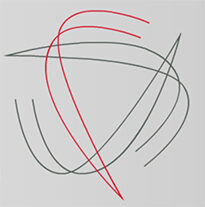Strategic visioning and scoping
It takes hard work and an effective process to assemble a successful future, so this is where it all starts – and, of course, where it can all begin to go downhill. In a warm friendly environment the world can be your oyster, but reality is usually a hard place with more than one rock. The purpose of scoping any idea is to take a concept from the ‘what’ to the ‘how’ and you can trust SIG to facilitate and define the big picture – as well as to spot any major obstacles before you stumble into them.
Self-sustainability initiatives
In the third sector, we’ve heard grants likened to heroin in that the more you get, the more dependent you become. Not to make light of a serious subject, but funding has a nasty habit of drying up, often with little or no warning – and perhaps this is equivalent to cold turkey if it forces your project to close.
No-one can beat funding reliance in one hit but the sooner you involve SIG, the quicker we can assess the alternatives and, hopefully, begin to supplement your project’s income with the sustainable revenues of a related social enterprise that enable you to plan ahead.
Partnerships and joint ventures
By acting alone or in isolation, many organisations unintentionally limit their impact. On the other hand, partnerships, joint ventures and collaborations can dramatically improve things and SIG have the cross-sector knowledge, vision, contacts and objectivity to help you leverage your vision through effective cooperation. In our experience, there is strength in size, there is benefit in sharing and, often as not, much to be usefully shared.
Bid-writing and fundraising
Many grant givers have very specific selection criteria and surprisingly few causes take enough time to understand what’s being asked for, let alone what can be supported. Most wait until the last minute, then rush to write from the heart in an emotional, inefficient, ‘hit and miss’ approach that, at best, only just might hit the mark. In fact, according to BIG Lottery, 75% of the applications they receive are seriously incorrect! That’s why, at SIG, we interrogate what is required thoroughly before we even put pen to paper and then work systematically to deliver it. Okay, so it’s not foolproof – but it often wins a result.
